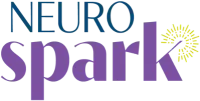Am I Autistic? Signs of Autism in Adults and How to Know

Table of Contents:
If you’ve ever wondered, “Am I autistic?” You’re not alone. Many adults come to this realization later in life, often after years of feeling different or out of sync with societal expectations. Recognizing and understanding autism in adulthood can be a transformative journey, offering clarity, self-compassion, and a sense of belonging.
What Are the Signs of Autism in Adults?
Autism exists on a spectrum, and its presentation varies widely. But some common signs in adults include:
- Social Challenges: Difficulty interpreting social cues, maintaining eye contact, or navigating conversations. You might prefer deep, meaningful discussions over small talk or feel drained after social interactions. High-masking autistic traits often make this struggle invisible to others.
- Communication Differences: A tendency to take things literally, struggle with sarcasm, or find it challenging to read between the lines. You may also engage in deep dives or monologues about your interests—something we explore more in What Is AuDHD?.
- Repetitive Behaviors and Routines: A strong preference for routines and predictability. Changes in plans or unexpected events can feel overwhelming or even triggering. These routines often provide a sense of control, especially when navigating a dysregulated nervous system.
- Intense Interests: Passionate focus on specific topics or activities—commonly called special interests. These interests can be a source of joy, calm, and identity.
- Sensory Sensitivities: Heightened or muted responses to sensory input. This might look like avoiding certain clothing textures, struggling with noise levels, or seeking out deep pressure. Learn more in Sensory Profiles in Neurodivergent Populations.
- Masking: Suppressing or camouflaging autistic traits to appear neurotypical, often at the cost of emotional and physical exhaustion.
Self-Diagnosis vs. Formal Assessment
Many adults first recognize themselves as autistic through self-reflection, online communities, and relatable content. And that’s valid. Self-diagnosis is a legitimate form of neurodivergent identity, especially when access to formal diagnosis is limited by cost, wait times, or gatekeeping professionals.
A formal assessment, however, can provide clarity, validation, and access to workplace or educational accommodations. The process should be affirming, not pathologizing. If you’re curious about what to expect, we break it down in Where to Get Tested for Autism as an Adult and Can Autism Testing Be Done Virtually?.
Both paths are valid; what matters most is what feels right and accessible to you.
Next Steps: Exploring Your Neurodivergent Identity
If this blog resonates with you, here are some affirming steps forward:
1. Learn from Lived Experience
Read personal reflections and articles by autistic adults, like What Is Autistic Inertia?
2. Connect with Community
Whether online or in person, spaces for neurodivergent adults can provide support, validation, and belonging. Explore our Facebook groups for peer support.
3. Consider Your Support Needs
Whether it’s accommodations, therapy, or just someone who gets it, identifying your needs is a form of self-care.
4. Explore Formal Diagnosis (If Desired)
Our guide on Understanding the Process of Getting Tested for ADHD overlaps with autism evaluations and may help clarify what to expect.
You’re Not Alone
Realizing you might be autistic often comes with a swirl of emotions, including relief, grief, clarity, and empowerment. That’s okay. This isn’t a destination; it’s a process of self-discovery. And you’re allowed to take your time.
At NeuroSpark Health, we specialize in neurodiversity-affirming autism assessments for adults, especially those who have spent years masking, camouflaging, or doubting themselves. If you’re ready for answers, or even just to talk it through, we’re here.
👉 Learn more about our autism assessments for adults or our self-diagnosis coaching

Cat Salladin, LSW
One Spark Can Light a Fire
Diagnosis can be the catalyst for significant momentum. It can represent a turning point for your life, where you can move forward equipped with new knowledge about yourself and a new framework to guide you in your journey.
A formal assessment provides an incredible opportunity to gain knowledge about who you are and how you see the world.



